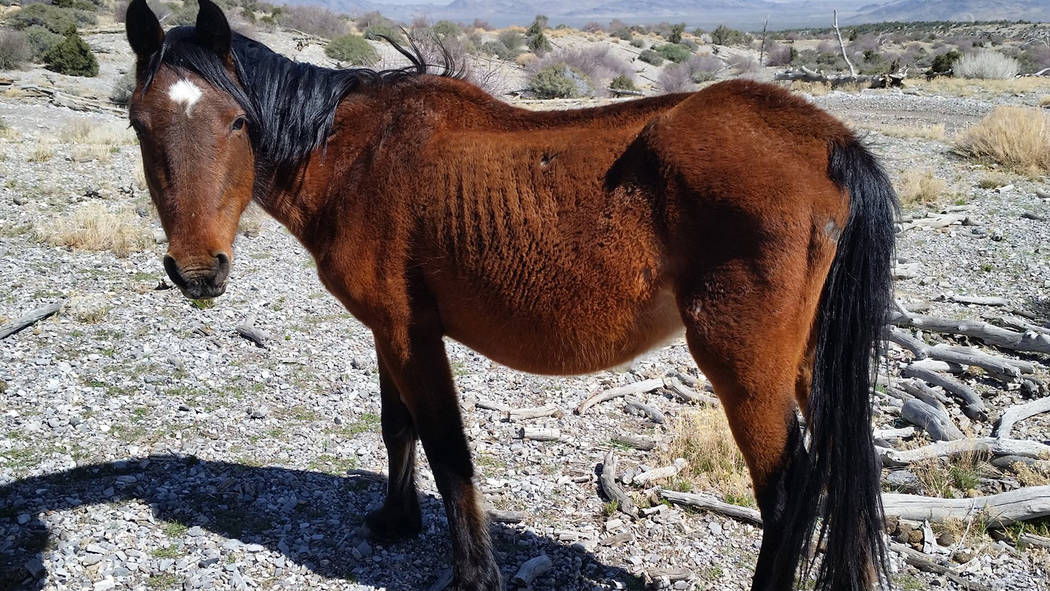
Extreme drought conditions and lack of forage is prompting the U.S. Forest Service and U.S. Bureau of Land Management to begin gathering and providing emergency care for up to 200 wild horses within the Wheeler Pass Joint Management Area, officials announced Monday.
The effort is to begin around the week May 14 in the Cold Creek area of Wheeler Pass Joint Management Area about 30 miles northwest of Las Vegas.
“The Forest Service and BLM have been monitoring the situation and the wild horse population has increased beyond the area’s limited forage resources,” said Bill Dunkelberger, forest supervisor of the Humboldt-Toiyabe National Forest. “Many of the animals are in very poor condition, and we do not expect the situation to improve any time soon.”
Both agencies have observed the wild horses in the Cold Creek area of the Wheeler Pass Joint Management Area browsing on the bark of Joshua trees and other desert shrub forage that lack sufficient nutritional value.
Adequate water is available for the animals, however, they must travel over 10 miles from existing water sources to find adequate forage on the valley floor or farther up into the Spring Mountains, the Forest Service said in a statement this week.
The traveling in search of forage has negatively impacted the horses’ body conditions and the health of foals, the Forest Service said.
The Wheeler Pass area is made up of the Spring Mountain Wild Horse and Burro Territory, which encompasses around 102,221 acres within the Humboldt-Toiyabe National Forest’s Spring Mountains National Recreation Area, and Wheeler Pass Herd Management Area, which encompasses approximately 102,221 acres within the Southern Nevada BLM District.
Since 90 percent of the wild horses are on National Forest System lands, the Forest Service will be the lead agency conducting the emergency gather, officials said.
The wild horses will be gathered by low-stress bait trapping by an approved BLM contractor. The gathered horses will immediately be moved to a temporary holding facility where they will receive health assessments and feeding.
Once medically cleared by on-site veterinarians the horses will be transported to a BLM holding facility in Ridgecrest, California, where they will be made available for adoption or transferred to off-range holding facilities.
“The Forest Service and BLM are committed to the safe and humane treatment of these wild horses throughout the emergency gather operations,” Dunkelberger said.
“Prior to and during gather operations, a veterinarian will be accessing the condition of the horses and supplemental feeding will be provided to prevent further deterioration of their body condition and improve their chances of survival,” he said.
Because of the need for wild horses to adjust to the hay and corrals in a quick and safe manner, only essential wild horse personnel will be allowed at the gather sites during initial operations, the Forest Service said.
Depending on the animals’ adjustment, public viewing through an escorted tour of the temporary holding facility may be arranged at some point during the gather, the Forest Service added.
A qualified veterinarian will be on-site during all gather operations.